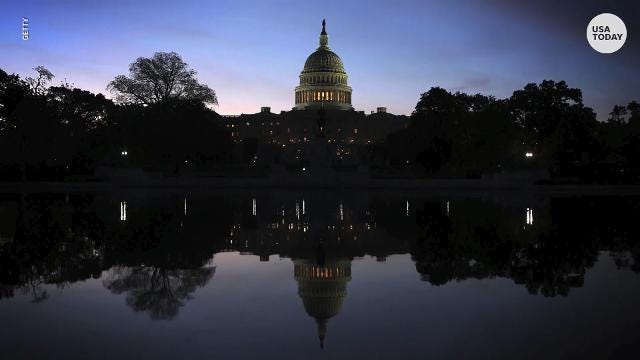Trump’s Trade Policy Challenges: Legal Blocks, Inflation, and Midterm Elections
The trade policies of former President Donald Trump have faced legal challenges, a rise in inflation, and may face a further challenge: the upcoming midterm elections, approximately a year and three months from now. What kind of sudden trade actions will the stalwart leader from the Oval Office take against allies that have been dealing in good faith? In his forceful confrontation against the global trade system, how much will Trump expect from allies like Canada, whom he seems to regard like old-school colonies? President Dwight D. Eisenhower once referred to the bond between Canada and the United States as a ‘superb unity.’ Neither he nor any subsequent presidents could have foreseen what Trump is doing now. However, it’s unlikely his authoritative approach will survive in the long run.
Opposition to his stance is mounting and numerous obstacles lie ahead. He’ll likely come across numerous hardships. His tariff declarations continue to come via social-media posts filled with misconceptions, and he alters or abandons them based on his current impulses. This attitude inflicts significant harm, even if it’s temporary. One imminent problem for him is legal impediments. Few people have discussed the fact that the majority of his tariffs were deemed unconstitutional by the U.S. Court of International Trade, including a judge appointed by Trump himself.
The court concluded that Trump misused the seldom-invoked International Emergency Economic Powers Act in an attempt to justify his tariff proclamations. Granted, the American economy is in fairly good health, but we’re expected to accept that somewhat normal trade deficits amount to a national crisis. Or that less than 1 per cent of U.S. fentanyl traffic from Canada represents a significant emergency demanding hefty tariffs. This initial trade court ruling is currently being held off, pending an appeal due to be heard shortly.
If the ruling is maintained, it could reach the Supreme Court. Despite the conservative nature of this court, they may not feel obliged to support Trump on this matter. If the law doesn’t deter Trump, perhaps the inflation caused by his tariffs will. Recent data indicate U.S. inflation increased in June, with prices on goods like furniture and clothing, which have been impacted by the tariffs on Canada and other nations.
Economists have cautioned that Trump’s fixation on tariffs is a drain, a losing battle. Now in the midst of determining the magnitude of tariffs he will autocratically enforce, he may second-guess his plans. If neither the courts nor inflation shake him, midterm elections just over a year away could be the deciding factor. The Republicans have slim majorities in both the House and Senate, and with midterms traditionally swinging against the current administration, there is a fair chance Trump will lose essential congressional support, limiting his agenda.
Democrats, despite their protectionist inclinations, stand against his tariff war. Elon Musk, irate about the debt-expanding ‘Big Beautiful Bill’ that the former President passed, is in the process of starting a new political faction which could possibly pare down some Republican backing. It’s worth noting that there isn’t unanimous support for high tariffs within his base. There is another potential obstacle to Trump’s trade war plans, namely the possibility of a coordinated opposition from principal trading partners, leading to a scenario that leaves America more isolated.
All these factors should be taken into consideration by the current government. The dedication to nation-building across the East-West divide domestically seems to be a prudent move. There’s also wisdom in diversifying international trade. Geographical realities mean that the U.S. will continue to be the largest market, yet the reliance need not be so extreme.
For well over a hundred years, Canada and the U.S. have marched down the path of economic integration. While prioritizing their own nations’ needs, U.S. presidents – until Trump – typically offered Canada the respect and fair treatment expected of a trusted ally and good neighbor. Trump’s administration has marked a harsh deviation from this course.
However, these deviations are not permanent. His severe tariffs, should he push forward with them, are also not expected to prevail in the long term, nor is his era. The economic chaos he’s stirred up should be viewed in context. It’s a temporary phase in a larger narrative.

